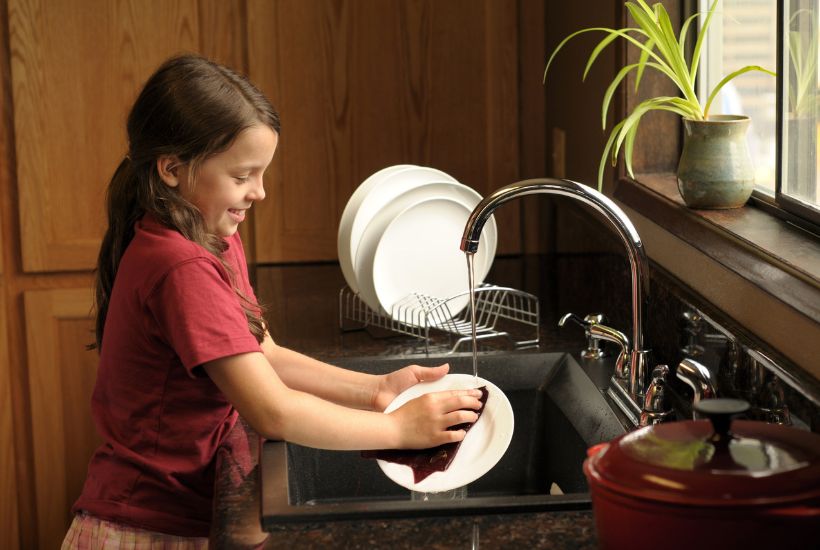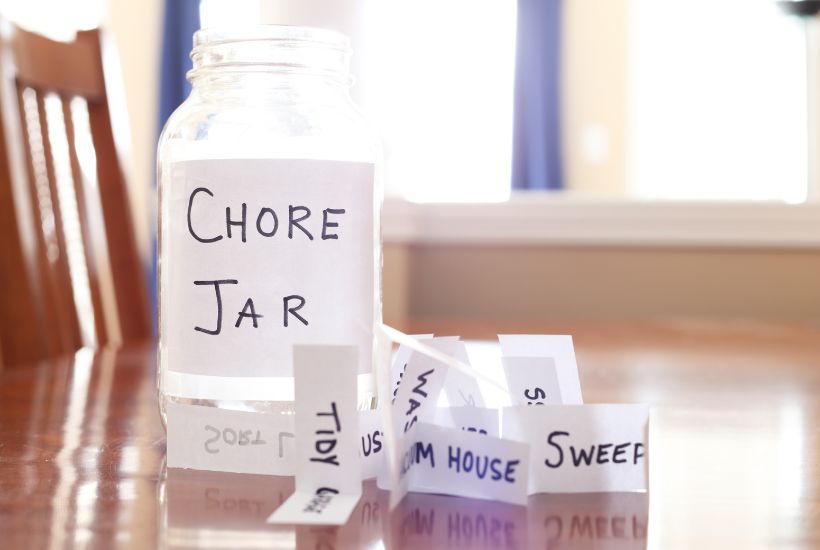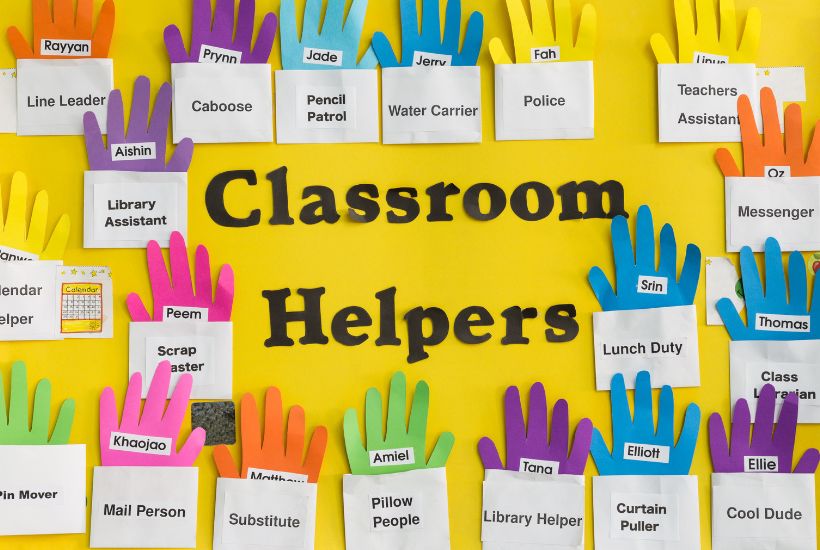6 Amazing Benefits of Kids’ Chores
Parents everywhere juggle a million things every day – it can be hard to find time to fit in everything we need to do, including giving our children chores. But did you know that giving your kids chores can benefit them in several ways? So let’s take a closer look.
It is often said that children are the future. That means that our decisions about raising and educating our children will profoundly impact the world tomorrow. One way to ensure that our children grow up to be responsible, contributing members of society is to give them chores.
Chores help children learn important life skills such as responsibility, teamwork, and communication. They also teach children how to interact with others and contribute to society. By helping around the house, children can feel good about themselves and learn the importance of caring for their belongings.

Benefits of children doing Chores:
- Responsibility
- Work Ethic
- Self-Esteem
- Cooperation & Communication Skills
- Team Work
- Contribution
1) Teaching responsibility through kids’ chores
One of the benefits of having your children do chores is that it teaches them responsibility. When kids have to take care of their own things and perform various tasks around the home, they start to understand that they need to be careful with their belongings and responsible for their actions.
As they age, this sense of responsibility will help them in school, work, and other areas of their life.
2) Developing a strong work ethic through kids’ chores
Another benefit of kids’ chores is that they can help them develop a strong work ethic. When children have to perform tasks regularly, they learn the importance of diligence and hard work.
They also learn how to persevere through complex tasks and challenges. As they get older, this strong work ethic will help them in their careers and other aspects of life.
3) Improving self-esteem through kids’ chores
Kids’ chores can also help improve their self-esteem. When children can successfully complete tasks around the house, they feel good about themselves and their abilities.
4) Learning cooperation and communication skills through kids’ chores
Another benefit of kids’ chores is that they can help children learn cooperation and communication skills.
When children work together to complete tasks, they learn how to communicate effectively and cooperate with others. These skills are essential in school, the workplace, and other areas of life.
5) Learning teamwork through kids’ chores
Kids’ chores can also help children learn the importance of teamwork. When children work together to complete tasks, they learn how to communicate effectively and cooperate with others.
6) Contributing to the family through kids’ chores
Finally, kids’ chores can help children feel like they are contributing to the family. When children help with tasks around the house, they feel like they are doing their part to make the home a better place.
This sense of contribution can help them feel more connected to their family and invested in their home.

Tips on how to get started with kids’ chores
1) Start small
When you first start giving your children chores, start small. Have them do tasks such as putting their toys away, picking up their clothes off the floor, or making their bed.
This will help them get used to the idea of doing chores and help them develop good habits.
2) Make a chore chart
Creating a chore chart is a great way to help your children stay organized and accountable. List out the tasks that need to be done and assign them a specific day of the week. This will help ensure that all tasks are completed on time.
3) Set a good example
One of the best ways to get your children to do their chores is by setting a good example yourself. For example, suppose you are diligent about completing your own tasks and taking care of your belongings. In that case, your children will likely follow suit.
4) Make it fun
Another way to get your children excited about doing chores is by making it fun! For example, turn cleaning into a game or have a dance party while doing laundry. If you make it fun, your children will be more likely to participate.
5) Reward good behavior
Finally, reward your children when they do a good job with their chores. This could be in the form of verbal praise, extra free time, or enjoying ice cream together. Whatever you decide, be sure to let them know that you are proud of their efforts.
6) Be patient
Learning how to do chores and developing good habits takes time. Be patient with your children and encourage them along the way. With a little effort, they will be doing their chores like pros in no time!

What not to do when giving children chores
There are a few things you should avoid when giving your children chores.
1) Too many Chores
First, don’t give them too many tasks at once. This will only overwhelm them and make them less likely to want to do their chores.
Start small and gradually increase the number of chores as they get more comfortable.
2) Chores that are too difficult
Second, don’t assign them tasks that are too difficult. This will only frustrate them and make them less likely to want to do their chores. Instead, start with easy tasks and gradually increase the difficulty as they get more comfortable.
There are a lot of age-appropriate chores your child can do starting at the age of 2.
3) Using chores as a punishment
Finally, don’t make the mistake of using chores as a punishment. This will only make them resentful and less likely to want to do their chores. Instead, use chores as an opportunity to teach them responsibility and good habits.
4) Using Rewards as an incentive
While it’s important to praise your children when they do a good job with their chores, you should avoid using rewards as an incentive. This will only make them expect a reward every time they do their chores and could lead to bad habits.
By following these tips, you can ensure that your children will benefit from doing their chores. So give them a try and see for yourself!

Real stories about the benefits of kids’ chores
When it comes to teaching children the importance of doing chores, nothing beats personal experience. Here are a few stories from real-life families who have seen the benefits of giving their children chores.
When it comes to giving children chores, I’ve found that the benefits are endless. Here are a few funny stories from real-life families who have seen the benefits of chore-giving firsthand:
The family that sings together cleans together.
One family I coached had a tradition of singing while they cleaned. They would take turns picking out a song, and everyone would join in. This not only made cleaning more fun but also helped the family bond.
The family that celebrates success.
Another family I coached had a rule for each child to choose a special treat once they completed all of their weekly chores. This family celebrated success and helped teach their children the importance of completing tasks.
The family that turns cleaning into a game.
Yet another family I coached turned cleaning into a game. They would put a song on and race to clean the room as a team before the song ended. This made cleaning more fun and helped the family work together.
The family that learns together.
One final family I coached used chore time as a chance to learn. They would take turns teaching each other how to do different tasks around the house. This not only helped them bond, but it also helped them learn new skills.

Finally
Giving your children chores can benefit them in many ways. For example, chores help children learn responsibility, develop a work ethic and improve their self-esteem. They also teach children how to interact with others and communicate effectively.
By helping around the house, children can feel good about themselves and learn the importance of contributing to society. What are some benefits that you have seen from your child doing chores?






